Blog
Can SoftWave Therapy Provide Lasting Relief for De Quervain’s Tenosynovitis? Discover a Non-Invasive Solution with Dr. Jeremiah Jimerson
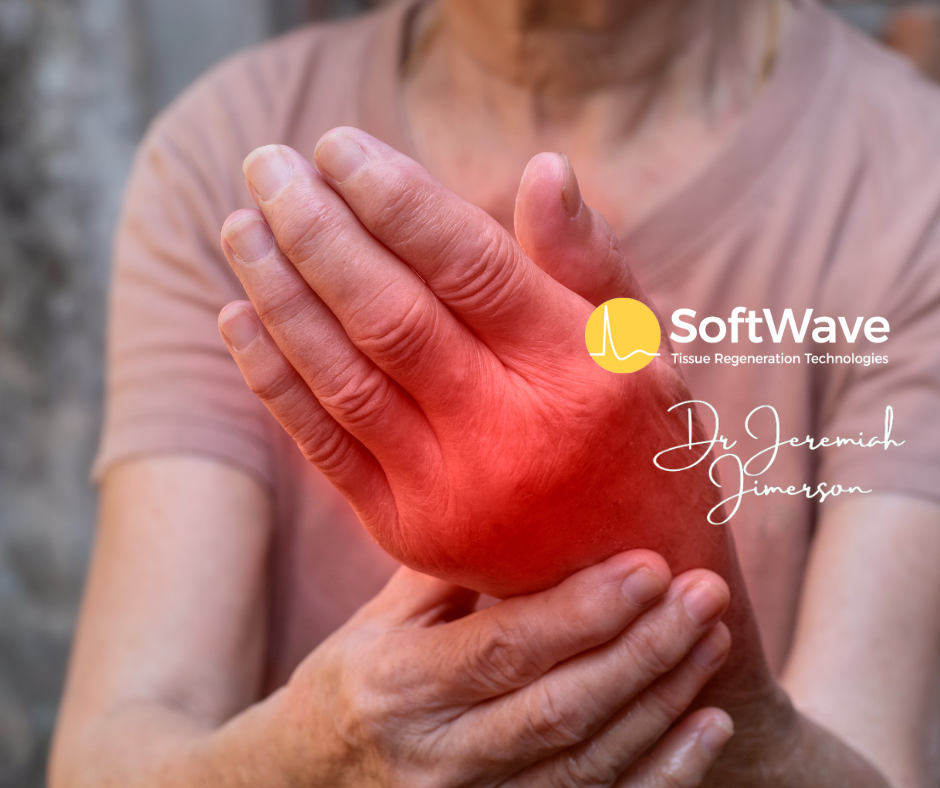
De Quervain’s Tenosynovitis is a painful condition affecting the tendons on the thumb side of the wrist, causing discomfort that can make even simple tasks like gripping, lifting, or holding objects challenging. Often caused by overuse, this condition commonly affects people who perform repetitive hand movements. While traditional treatments include rest, splinting, medications, and injections, SoftWave Therapy offers a non-invasive, drug-free alternative that promotes natural healing and provides lasting relief. At Fix Your Pain Charleston, Dr. Jeremiah Jimerson, DC, ART has achieved fantastic results for patients with De Quervain’s Tenosynovitis using SoftWave Therapy, helping them recover without surgery or repeat injections.
What is De Quervain’s Tenosynovitis?
De Quervain’s Tenosynovitis is a condition that involves inflammation of the tendons around the base of the thumb, specifically the abductor pollicis longus and extensor pollicis brevis tendons. These tendons run through a tunnel-like structure in the wrist, and when they become inflamed or swollen, they have difficulty gliding smoothly, leading to pain and restricted movement.
Causes of De Quervain’s Tenosynovitis
This condition is often caused by repetitive movements or overuse of the thumb and wrist. Common causes include:
- Repetitive Hand Motions: Activities like typing, texting, playing instruments, or working with tools can strain the tendons and lead to inflammation.
- Holding or Lifting Objects: Actions that require gripping or holding, especially if performed repetitively, can contribute to the development of De Quervain’s.
- Injury: Trauma to the wrist or thumb can cause swelling in the tendons, leading to this condition.
- Hormonal Changes: Hormonal shifts, particularly during pregnancy, can lead to fluid retention, which may exacerbate the symptoms.
Who Does De Quervain’s Tenosynovitis Affect?
De Quervain’s Tenosynovitis can affect anyone, but it’s most common among:
- People who use their hands repetitively: Office workers, musicians, athletes, and laborers are more prone to this condition due to repetitive hand and wrist movements.
- New parents: Lifting a baby frequently can put strain on the tendons around the thumb.
- Middle-aged individuals: De Quervain’s is more prevalent among people aged 30-50, with women experiencing it more often than men.
Traditional Treatments for De Quervain’s Tenosynovitis
The traditional approach to treating De Quervain’s Tenosynovitis typically involves a combination of rest, splinting, anti-inflammatory medications, and, in some cases, steroid injections. These methods aim to reduce inflammation and relieve pain but may provide only temporary relief and can sometimes lead to unwanted side effects:
- Rest and Splinting: Immobilizing the wrist with a splint helps reduce movement and strain but doesn’t address the root of the inflammation.
- Anti-Inflammatory Medications: These can reduce pain temporarily but may come with side effects, especially when used long-term.
- Steroid Injections: While injections can reduce inflammation, they don’t offer a permanent solution and can weaken the tendons over time, potentially leading to further complications.
For patients seeking a natural, lasting solution, SoftWave Therapy is a safe and effective alternative that addresses both the symptoms and root causes of De Quervain’s Tenosynovitis.
SoftWave Therapy: A Science-Backed Solution for De Quervain’s Tenosynovitis
SoftWave Therapy provides non-invasive relief for De Quervain’s Tenosynovitis by using supersonic acoustic waves to stimulate the body’s natural healing processes. This technology targets the damaged tendons, reducing inflammation, promoting tissue repair, and delivering long-term relief without the need for drugs, injections, or surgery.
Key Benefits of SoftWave Therapy for De Quervain’s Tenosynovitis
-
Reduces Inflammation Naturally: SoftWave Therapy modulates the body’s inflammatory response, reducing swelling in the tendons and surrounding tissues. This leads to natural pain relief without relying on medications or steroid injections.
-
Promotes Tissue Repair and Regeneration: SoftWave Therapy stimulates the body’s resident stem cells and promotes tissue regeneration at the cellular level. This is crucial for repairing the damaged tendons and restoring function to the wrist and thumb.
-
Improves Blood Flow and Circulation: SoftWave Therapy enhances circulation by promoting angiogenesis (the formation of new blood vessels). Improved blood flow delivers essential nutrients and oxygen to the inflamed tendons, accelerating healing and recovery.
-
Non-Invasive and No Downtime: Unlike surgery, SoftWave Therapy is entirely non-invasive and doesn’t require any downtime. Patients can continue their daily activities without interruptions while experiencing relief from pain and improved mobility.
-
Safe for Long-Term Use: Because SoftWave Therapy doesn’t involve medications or invasive procedures, it’s a safe, long-term solution that doesn’t carry the risks associated with repeated injections or surgery.
How SoftWave Therapy Helps De Quervain’s Tenosynovitis Specifically
SoftWave Therapy works through mechanotransduction, a process that converts mechanical stimulation from acoustic waves into biochemical signals. These signals trigger a healing cascade that reduces inflammation, promotes cellular repair, and encourages tissue regeneration.
For patients with De Quervain’s Tenosynovitis, this therapy:
- Targets inflamed tendons: The supersonic waves penetrate deep into the wrist and thumb tendons, reducing inflammation at the source of the pain.
- Stimulates stem cells to promote tendon healing: SoftWave Therapy activates stem cells in the affected area, helping to repair and regenerate the damaged tendon tissues.
- Improves joint function and range of motion: By addressing the inflammation and tissue damage, SoftWave Therapy restores thumb mobility, allowing patients to return to their usual activities without pain.
Why SoftWave Therapy is Superior to Traditional Treatments
For patients with De Quervain’s Tenosynovitis, SoftWave Therapy offers a superior alternative to injections and surgery because it:
- Addresses the root cause of pain by promoting true healing, rather than simply masking symptoms.
- Supports long-term tendon health by reducing inflammation and promoting tissue regeneration, minimizing the likelihood of recurring issues.
- Eliminates the need for invasive procedures, providing a safe, natural option with no downtime or recovery period.
- Provides lasting relief, allowing patients to regain control over their hand and wrist movements without constant pain or discomfort.
Success Stories with Dr. Jeremiah Jimerson
At Fix Your Pain Charleston, Dr. Jeremiah Jimerson has helped numerous patients with De Quervain’s Tenosynovitis find relief and avoid surgery through SoftWave Therapy. With this non-invasive treatment, patients are able to restore function, reduce pain, and regain quality of life without relying on medications, injections, or immobilizing splints.
Dr. Jimerson’s expertise in SoftWave Therapy makes him an exceptional resource for those suffering from De Quervain’s, providing lasting results that improve mobility, relieve pain, and support the long-term health of the wrist and thumb.
Discover Lasting Relief from De Quervain’s Tenosynovitis at Fix Your Pain Charleston
If you’re dealing with the pain and limitations of De Quervain’s Tenosynovitis and want to explore a non-invasive, effective solution, SoftWave Therapy with Dr. Jeremiah Jimerson, DC, ART may be the answer you’ve been searching for. Experience the benefits of this cutting-edge therapy and find out how it can provide lasting relief from pain and inflammation, allowing you to enjoy life without restrictions.
Fix Your Pain Charleston
761 Saint Andrews Blvd
Charleston, SC 29407
Phone: 843.873.6004
Visit Fix Your Pain Charleston to learn more or request an appointment today!
‹ Back


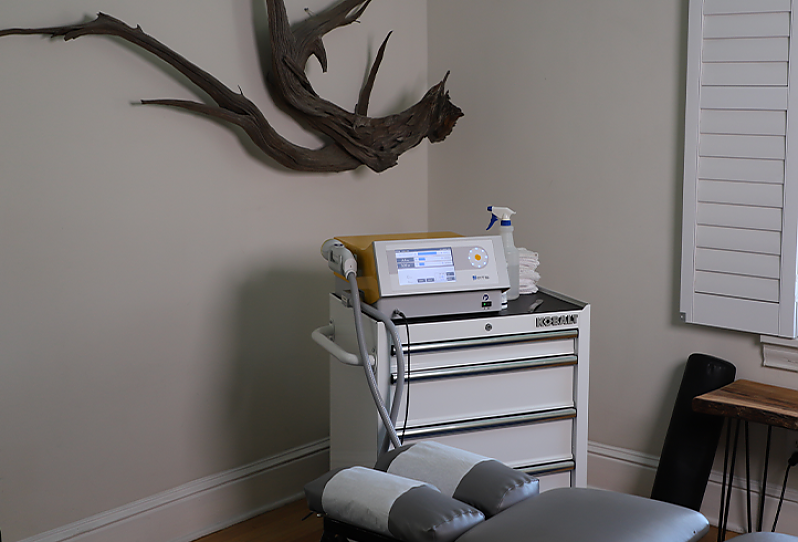
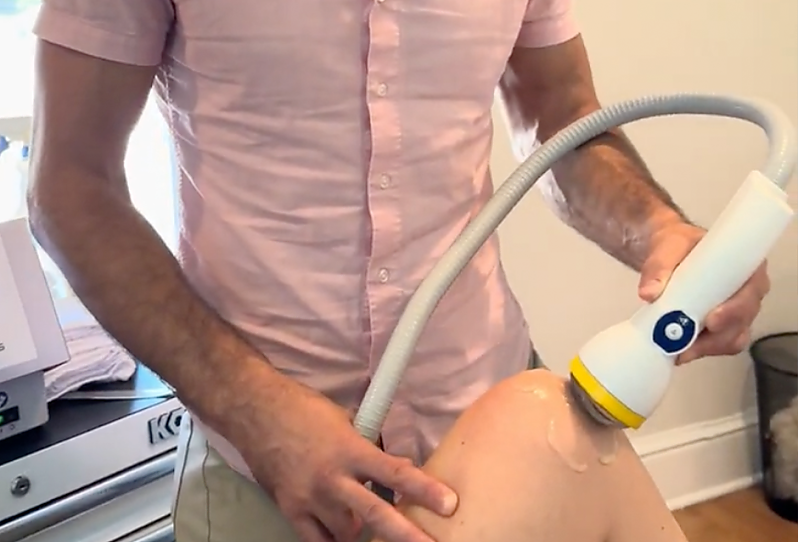
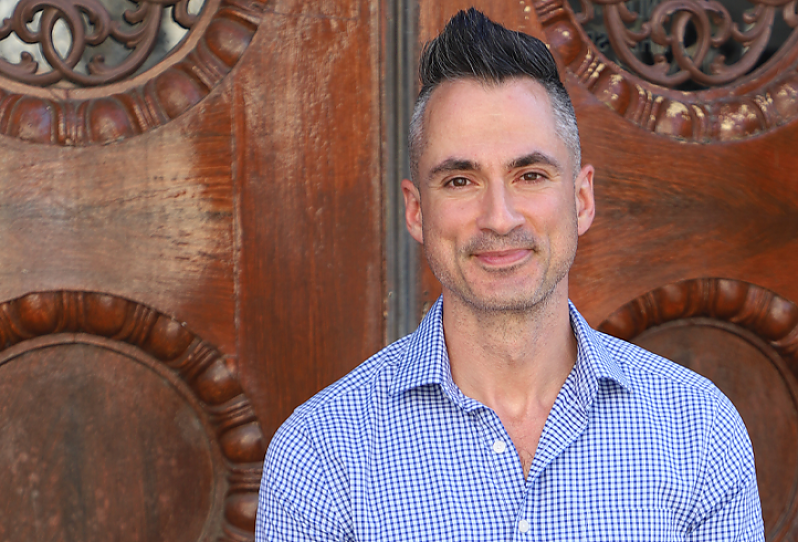
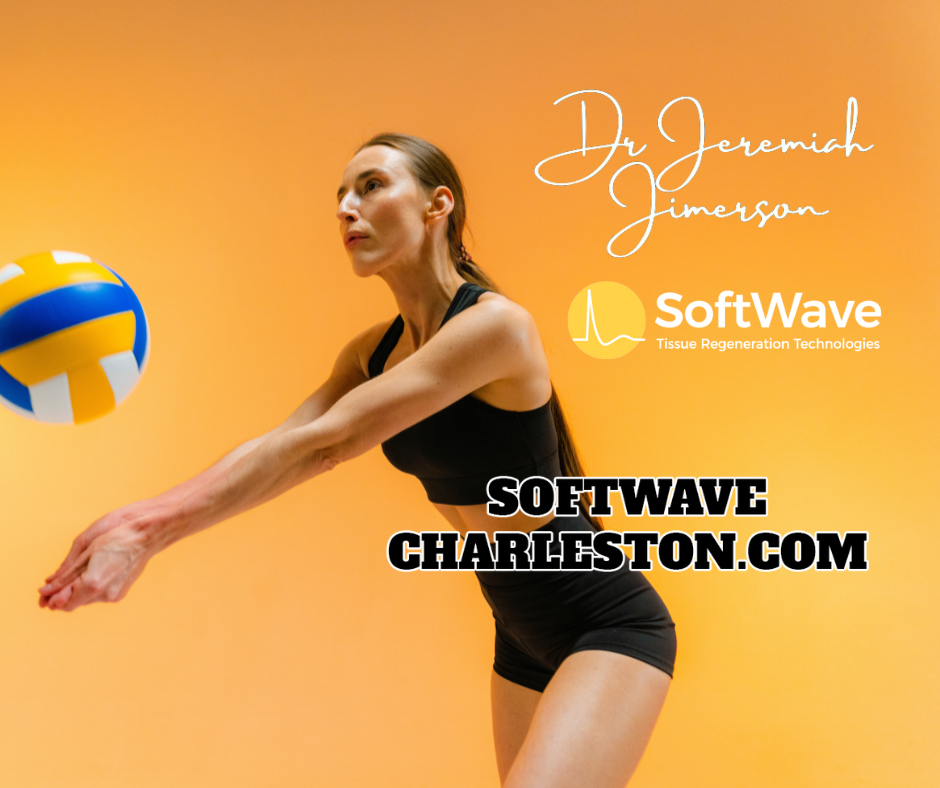
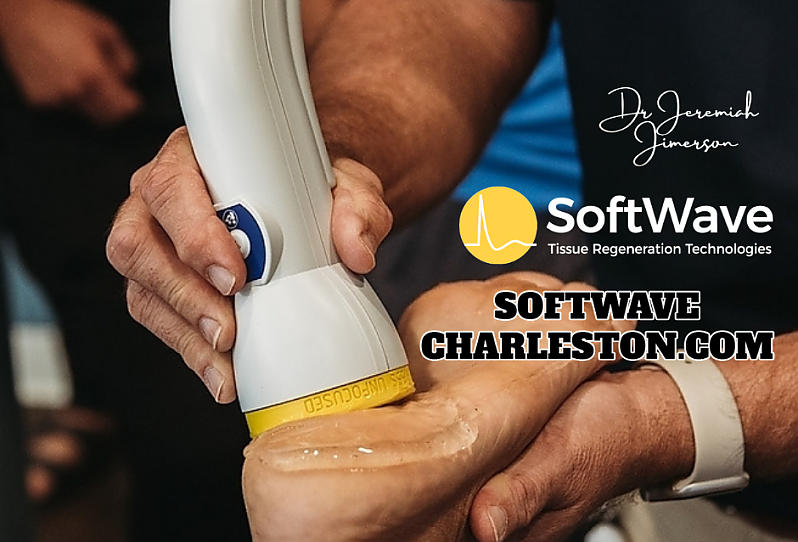

 761 St Andrews Blvd
761 St Andrews Blvd
